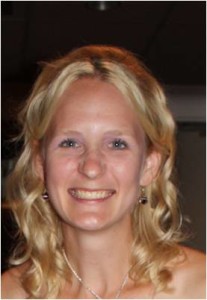(Editor’s Note: This post originally appeared here on KevinMD. Stay tuned for more of Wendi’s original work on the Physician Family blog and to read more of her previously published writing, visit her personal blog.)
By Wendi Kitsteiner
As my husband’s pick-up truck rolls up the driveway, a long ER shift behind him, my four kids come running from wherever they are currently playing on our farm. My seven-year-old son was reading in a rocker on the front porch. His six-year-old brother was watching the new baby chicks scramble around our brooder. My four-year-old daughter was helping feed our ducks. And my two year old was getting into who knows what.
But when daddy’s truck pulls up our long driveway, they all stop whatever they are doing and come running.
He emerges from “Sunshine” (as we affectionately call the twenty-year-old F-250 he purchased when we bought this farm) in his black scrubs and immediately scoops up one or more children into his arms at the same time. What follows is a series of conversations and wrestling — catching up on what has been going on in our lives during the twelve hours he has been away, and if there is nothing to talk about — tickling them instead.
As I watch him kissing our daughter, playing rock-paper-scissors with a son, checking out my little one’s drawings, and listening to another’s story, I think how amazing it is what he does. How he transitions, so seamlessly between two completely different lives.
He walks over and hugs me, asks me about my day, listens as I lament some burnt food or bad behavior or a lost stuffed animal.
And he listens like it matters.
And it does, of course.
But I often can’t help but wonder how my husband so easily shifts from things that really matter to things that really don’t.
When the homecoming party starts dying down and the kids, satisfied with their Daddy time return to what they were doing before he pulled up, we sit down on the porch and he begins to unveil the shift he had just encountered.
I ask him not to tell me everything. If there is something that is very sad, and he doesn’t need to get it off his chest, I ask him not to tell me. To only give me what he needs for me to hear. I can’t handle it. It keeps me up at night.
I wonder how it doesn’t do the same to him.
And while no names or details are exchanged, I get enough information to realize that my husband was faced with numerous life and death experiences during his hours in the hospital last night. He came within minutes of losing a man to a heart attack. And he had to tell a wife that her husband did not make it. He met an autistic boy and managed to administer care without having to sedate him. Another patient, not in their right mind, reeked havoc on the floor before security was called in to help deal with the situation.
And here I am asking him if he could please take out the trash before I lose my mind! Can you get her markers down from the cabinet? Will you read the baby a book? Why didn’t you brush their teeth before bed?
My husband does it. He does his job and then leaves it. It’s one of the reasons he chose emergency medicine. Once he gets in his truck at the end of a shift, his phone doesn’t ring again. No one asks him about a patient. He doesn’t get any calls requiring him to return to work. And he walks into our home and takes off his scrubs and puts his stethoscope in his bag and becomes just a husband and a father and a farmer — as if he didn’t just save a life and lose a life the night before.
He walks through our kitchen door and is expected to completely shift gears. He is expected to put aside the horrors and miracles of what he just experienced and shift into the mundane wonderful aspects of “normal” life.
There are many noble professions. However, I find it difficult to believe many rival this one. I truly feel like my husband is given the incredible privilege and pressure of being with people during the most wonderful and difficult moments of their life. They are giving him permission to be a part of their most personal and sensitive and intimate moments. And he is handling those moments with skill and grace and kindness and care and then putting those moments aside to come home to us and pretend like my problems are real ones.
Being married to a doctor has changed how I see these amazing men and women. These are people who are straddling two unrelated worlds without hesitation.
They are saving lives and changing diapers.
They are stitching up wounds and taking out the trash.
They are doctors and parents and spouses all rolled up into one person.
And I, for one, want to say I’m impressed.
And thankful.
Wendi Kitsteiner is married to a family medicine physician working in emergency medicine in rural Tennessee. They have settled on a 100-acre farm where Wendi home schools their children. You can learn more about Wendi here on her personal blog.

